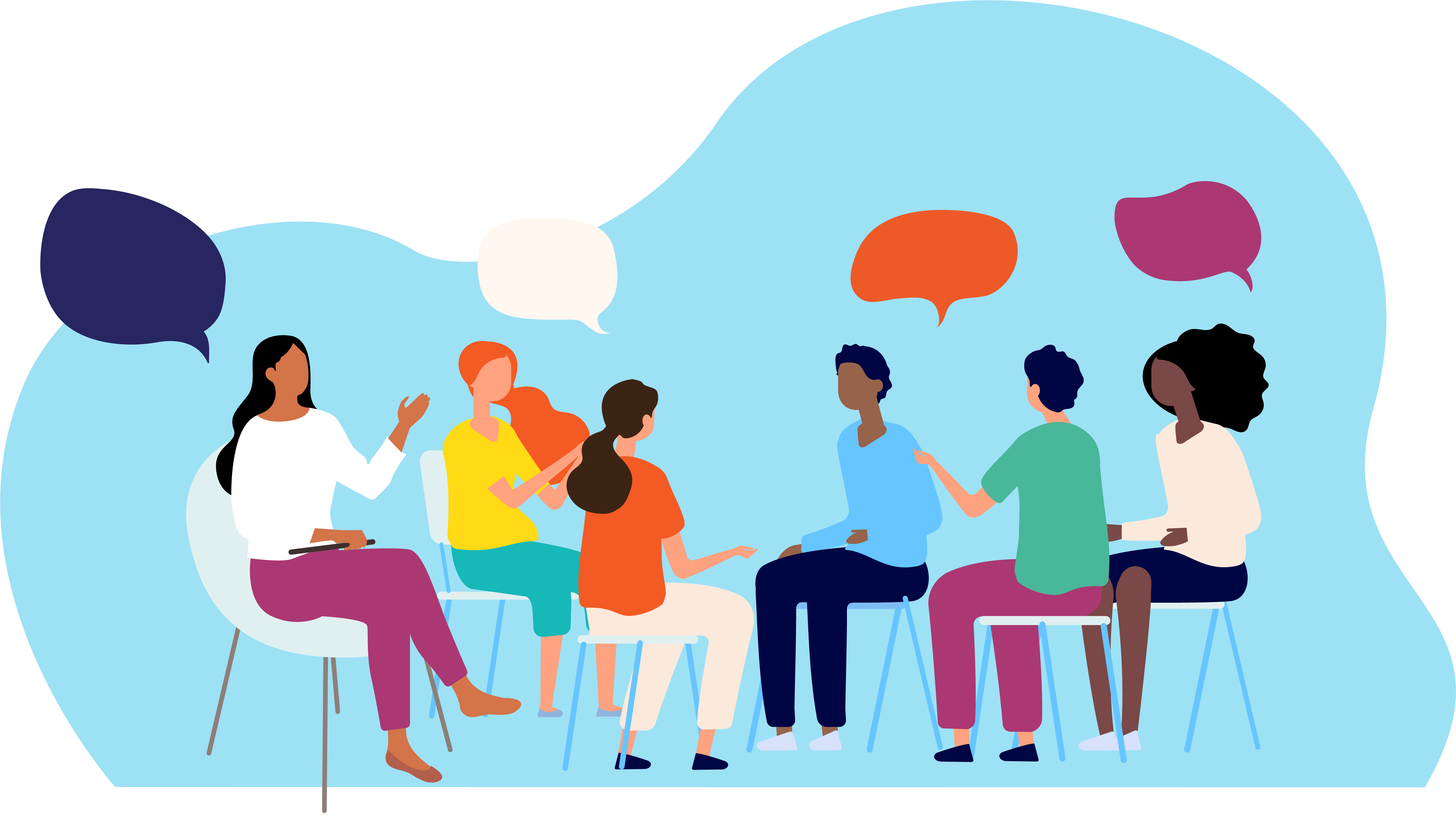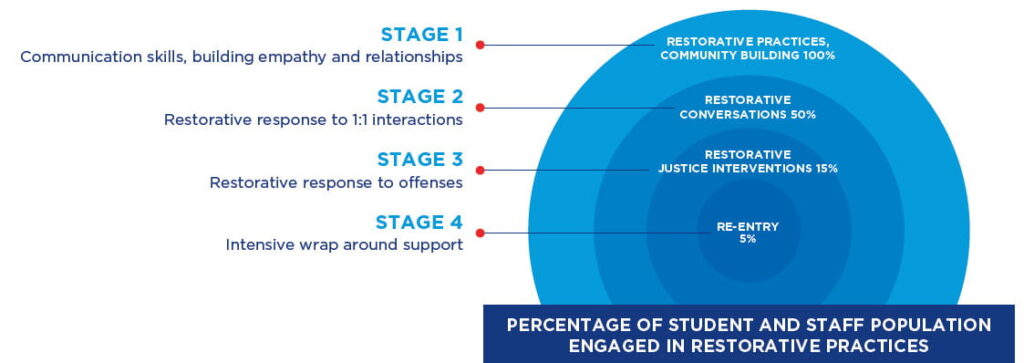
The purpose of RJP in San Diego County Schools is to cultivate relationships that help build and sustain a culture that is positive and welcoming for students, staff, and families.
We envision equitable and just schools where students, educators and the community that surrounds them experience connection and belonging and are able to thrive academically, collectively and personally.
View informational videos
Download, view, and print related brochures

“The premise of restorative practices is that people are happier, more cooperative and productive, and more likely to make positive changes when those in authority do things ‘with’ them, rather than ‘to’ them or ‘for’ them.” – International Institute for Restorative Practices (IIRP)

STAGE 1
STAGE 1 uses circles to proactively create strong positive relationships between teachers and students in classrooms. Restorative circles include the whole classroom community and focus on building empathy, good communication, a strong sense of belonging, and shared values through fun ice breakers and open dialogue. Circles are also used for staff development and focus on building positive campus culture.
STAGE 2
STAGE 2 uses one on one conversations to create a sense of empowerment and ownership for individual’s actions. Restorative conversations focus on sharing personal impact using “I” statements and creating a safe space where a challenging incident between two people can be discussed openly and honestly.
STAGE 3
STAGE 3 uses impact circles and restorative conferences to respond to offenses such as assault, vandalism, drug use, disorderly conduct, truancy, etc. These processes bring those affected by harm together to address the root causes of the incident, hold the student accountable, and promote healing for impacted community members, such as other students, teachers, staff, administrators, and school police.
STAGE 4
STAGE 4 uses restorative circles to welcome students back to their school site after a period of absence related to suspension, expulsion or incarceration. The focus is on mending broken relationships, creating a site based accountability plan, and creating supports for the student to ensure their academic success.
Current Districts
- San Diego Unified School District
- Sweetwater Union School District
- Escondido High School District
- Oceanside Unified School District
- Vista Unified School District
- San Dieguito Union High School District
- Poway Unified School District